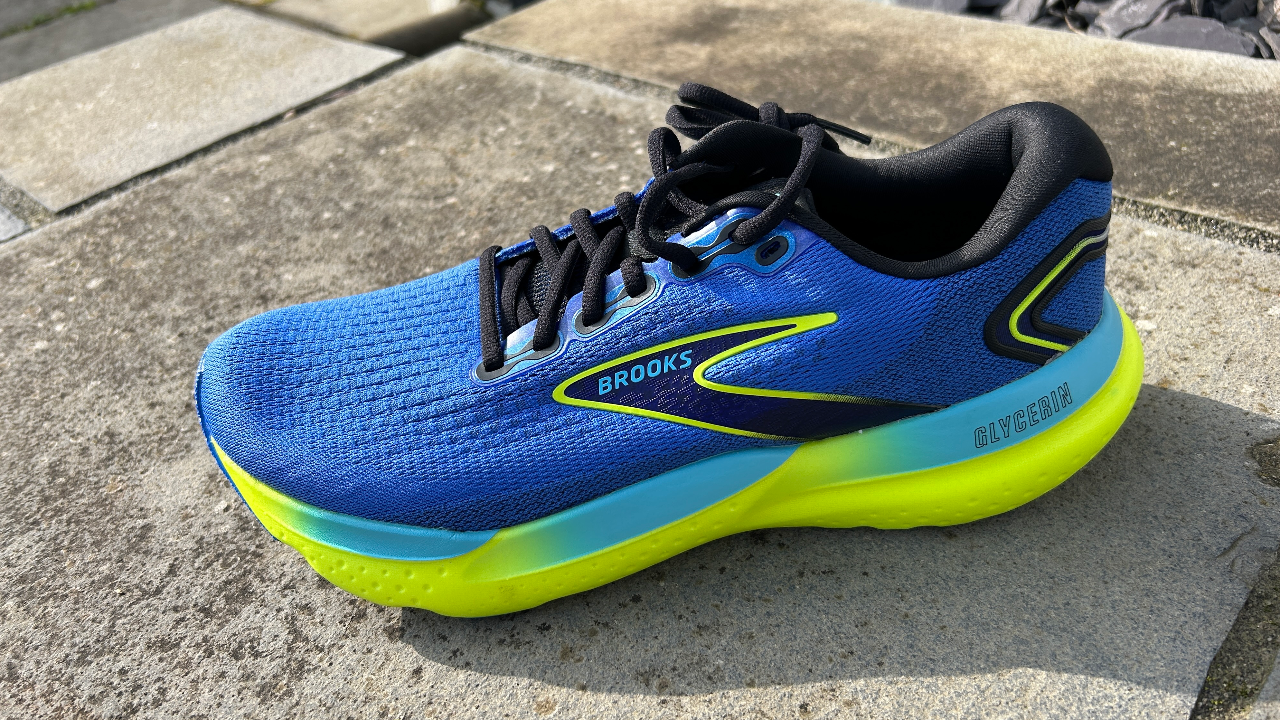
The Brooks Glycerin was once the most comfortable running shoe available, with its stack of cushioning making it stand out. Now, however, many of the best cushioned running shoes have higher stacks and softer foams than the Glycerin—and the Brooks Glycerin 21 is relatively lightweight and low-stack for a cushioned shoe. This makes it a more versatile daily training option than many cushioned shoes, and I rate the Glycerin 21 among the best running shoes for those looking for a protective shoe that has pop for faster runs.
Brooks Glycerin 21: Price And Availability
The Brooks Glycerin 21 launched in February 2024 and costs $160 in the US and £165 in the UK. That’s the same price as the Glycerin 20 now, though the older shoe initially launched with a UK price of £155. It’s far from cheap, and although many of the best cushioned shoes now cost a similar amount, there are cheaper options like the Puma Magnify Nitro 2 and Saucony Ride 17.
How I Tested This Running Shoe
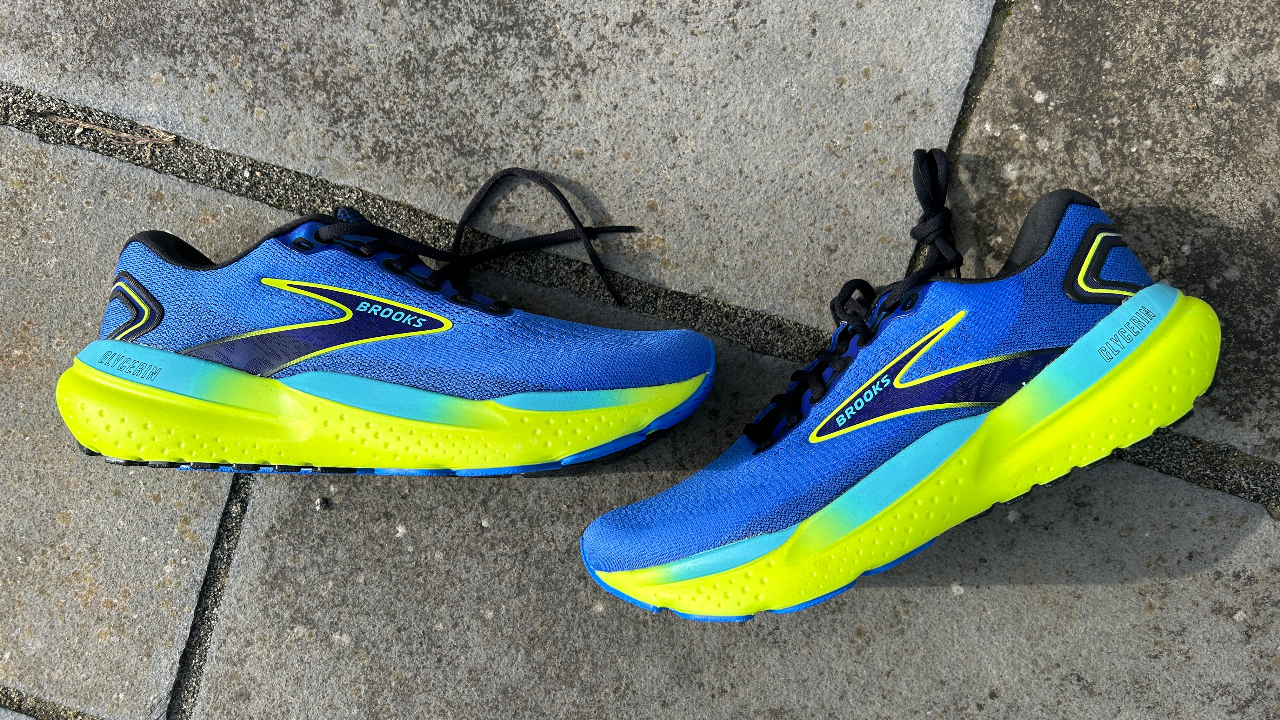
I ran 32 miles in the Glycerin 21, using it mostly for easy runs during my marathon training, including one longer run of about 13 miles. I’ve also tested each of the previous six versions of the Brooks Glycerin line, along with the Brooks Ghost Max and Ghost 15, and many other cushioned shoes from other brands.
Design And Fit
The new Glycerin has had its upper, midsole and outsole updated. Of these I’d say the most important is the 2mm increase in stack height. The Glycerin 21 is 36mm tall at the heel and 26mm at the forefoot for a 10mm drop, and while it’s only 2mm the extra cushioning is notable while running.
The foam used is Brooks’ DNA Loft v3, a nitrogen-infused EVA that offers a good balance of softness and responsiveness. It’s not as squishy as most foams used on cushioned shoes, but still protects the legs well, while being stable and giving a bit back when you run at faster paces.
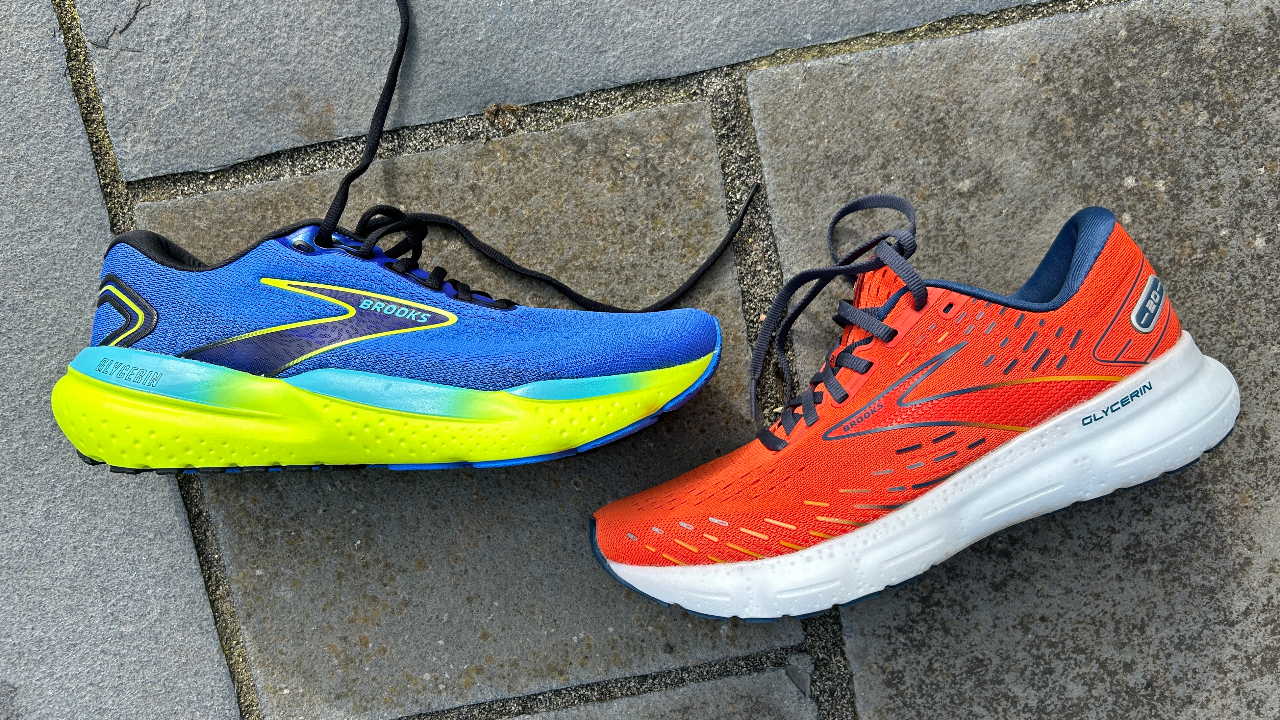
Despite adding more foam Brooks has been able to reduce the shoe's weight. The Glycerin 21 weighs 10.2oz/290g in my UK size 9, whereas the Glycerin 20 is 11oz/314g in the same size. Part of this is due to the redesigned upper, which Brooks describes as more streamlined, but it still has a lot of padding around the tongue and collar to provide the high level step-in comfort you expect from the Glycerin line. The shoe fitted well in my usual running shoe size, the same one I’ve used for previous versions of the Glycerin.
There is a new RoadTack rubber outsole on the shoe, which has more exposed foam on the bottom than the Glycerin 20, but all the key impact areas are covered with a thick layer of this rubber and it gripped well for me in wet conditions.
Running Performance
I’ve long been a fan of the Glycerin as a comfortable shoe for easy runs, and the Glycerin 20 went beyond that thanks to the introduction of the nitrogen-infused DNA Loft v3 foam, which made the shoe more versatile and enjoyable for faster running. The Glycerin 21 continues along that road by being lighter than the 20 while adding more foam, which increases its comfort. The ride isn’t particularly bouncy or as soft as other cushioned shoes, but it’s well balanced and works for a range of running.
It’s still a shoe that’s best for easy runs and it excels on long runs in particular. As with the Glycerin 20, my favorite runs in the Glycerin 21 were my longest ones, when the foam provided a resilient and protective base to work against. The 10mm drop and lack of a big rocker mean the ride is traditional and less smooth than more rockered shoes, but the transition from heel to toe isn’t so snappy that your forefoot slaps the ground. The Ghost Max is a more rockered option in the Brooks range that feels smoother, which some runners may prefer.
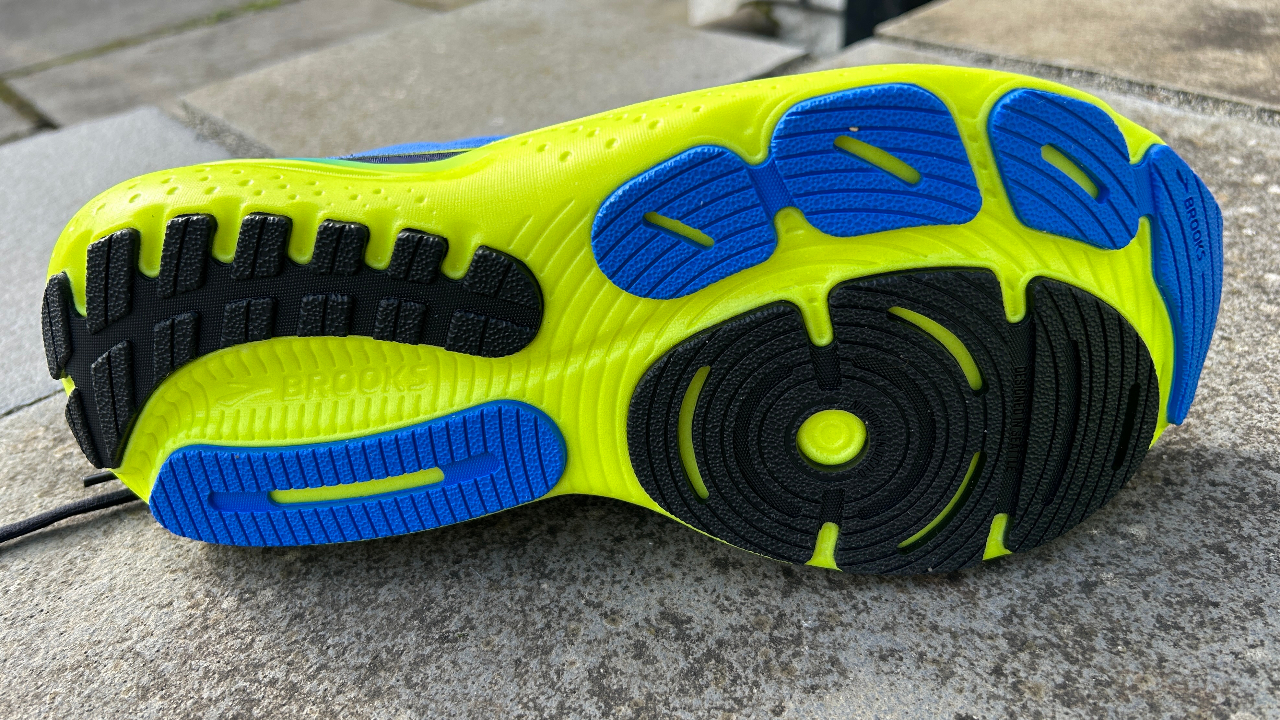
When I ran faster in the Glycerin 21 it still felt bulky to me so I’d use it in a running shoe rotation with faster shoes, but if you prefer a cushioned shoe for all your runs then it’s a good daily training option. Almost all my runs in the shoe were in wet conditions and the grip from the outsole was reliable even when pounding down hills streaming with water. The thick layer of rubber will also be durable and the DNA Loft v3 foam has a well-earned reputation for retaining its bounce over hundreds of miles, so you can expect the Glycerin 21 to be a long-lasting shoe.
Is The Brooks Glycerin 21 Worth It?
If you like a cushioned daily trainer, the Glycerin 21 is one of the best options. It’s also a great pick for marathon training, and running the race itself if you’re not shooting for as fast a time as possible, because of the way the foam retains bounce and comfort during long runs.
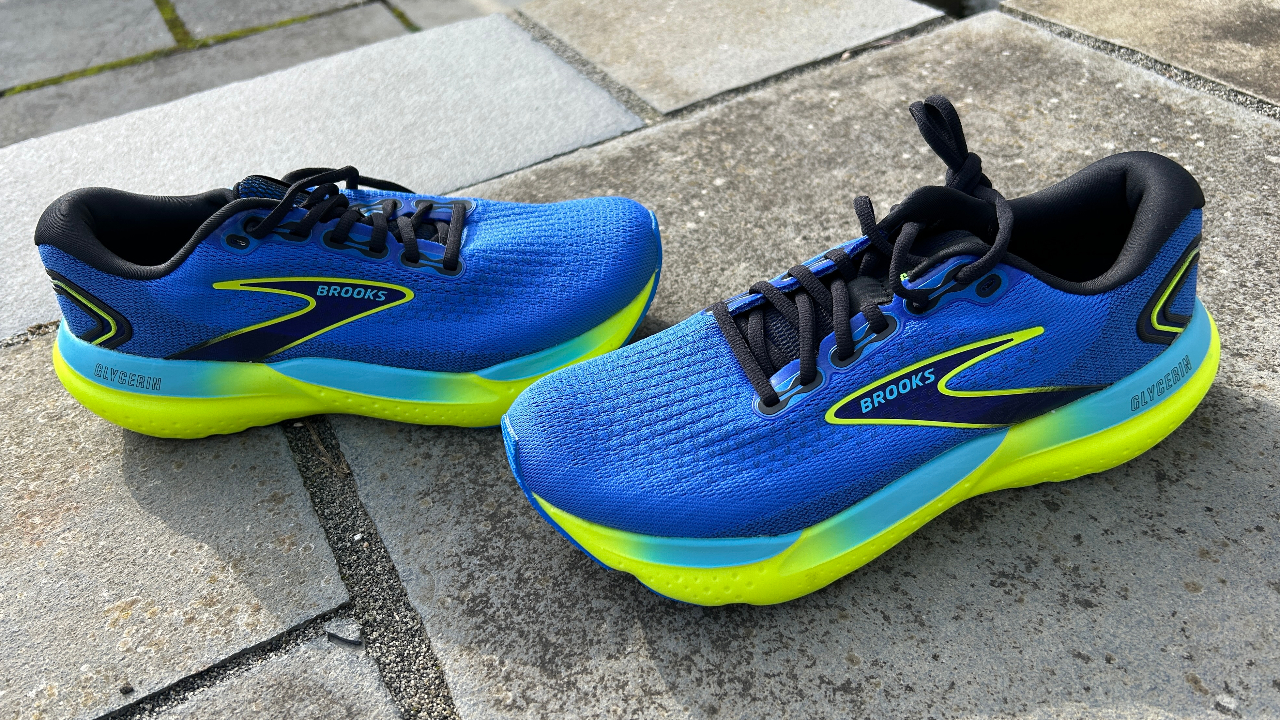
If you want as soft a ride as possible, check out the New Balance Fresh Foam X 1080v13 or Asics Gel-Nimbus 26, although these are not as versatile as the Glycerin 21 and I prefer its feel for long runs even at easy paces. There are cheaper alternatives that do the same job, like the Puma Magnify Nitro 2 and Saucony Ride 17, which are cushioned but still versatile shoes. The Puma Velocity Nitro 3 also has a similar level of cushioning to the Glycerin 21 and is lighter and cheaper, though it’s not as comfortable as the Brooks shoe.
For me, the Glycerin 21 is a more enjoyable shoe to run in at any pace than Brooks’s Ghost 15, which lacks the pop you get from the DNA Loft v3 foam (which will be used in the forthcoming Ghost 16). However, the Ghost Max is a good alternative to the Glycerin 21 if you prefer a smoother, more rockered ride.







